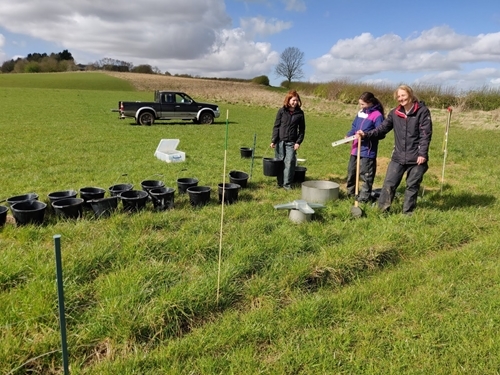By Prof. Chris Stoate Allerton Project Head of Research
It is remarkable to think that the Covid-19 pandemic that is causing so much personal, political and economic disruption stems from a food market the other side of the globe.
Virus transmission from wild animals to people has highlighted the trade in wildlife for food in other parts of the world. While the mode of transmission from wild species to people remains uncertain, there is clear evidence that this trade in species such as pangolins is unsustainable.
The fact that such trade is now in the spotlight can only strengthen conservation efforts for these species, although this is dependent on secure income and food supplies for the people who would otherwise be doing the trading. The pandemic makes that more difficult to achieve.
Let's be clear though. The justification for cessation of trade in endangered species for food is not that we find the consumption of wildlife culturally abhorrent. To follow that argument would lead us onto a slippery ethical slope. It might also lead us to question the consumption of abundant species such as deer, rabbits and woodpigeons whose control is important to protect food crops and wildlife habitats in the UK, while also providing a source of food in their own right.
In fact, as well as reminding us of the moral imperative for conservation of our own wildlife species, food shortages associated with the pandemic have brought into question our food system and highlighted the need for domestic production at local, regional and national levels, alongside international trade. The need to understand the relationship between food production and environmental objectives, including wildlife conservation, has never been greater.

Gemma Fox and team prepare for water infiltration assessments in our grass plots
Despite the national lockdown, our research into economically and environmentally sustainable farming methods continues, strictly within the constraints imposed by social distancing. Where data collection requires more than one person to conduct fieldwork at the same time, we have been fortunate in being able to recruit other members of the same household to help out.
There have been numerous other challenges to overcome though. With the implications for food producton of the 2018 drought still fresh in our minds, the intense rainfall over the most recent autumn and winter was exceptional. The very wet ground conditions completely precluded the establishment of autumn-sown crops, preventing food production from our land, creating economic problems for our farm business and for many others across the country, and leaving us with no arable experimental plots for research. Fortunately, it has been possible to drill some spring-sown crops this month, albeit under difficult conditions. Our research is increasingly focusing on these climate related challenges.
While potentially distracting from the over-riding need to address climate change, in common with climate change mitigation objectives, the Covid-19 pandemic highlights the need to act individually and collectively, locally and globally to address the challenges that affect us all.